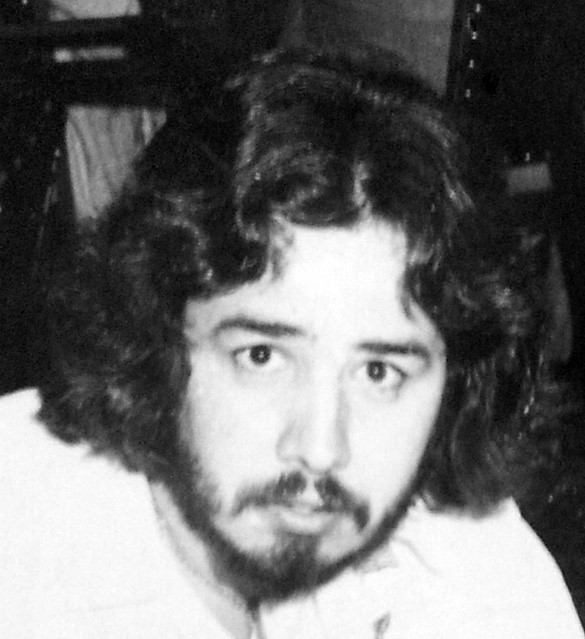The religious side of me cringes at reading that statement, but the practical part of me says, “Of course He was!”
One of the dichotomies Christians struggle with is the idea that Jesus was fully human (while still being God). Often when the subject comes up I tell people that I love Jesus, but that Paul is my Biblical hero. Why? Because he not only was human but was not God at all. Paul eluded to his humanity often. He called himself the “worst” sinner (1 Timothy 1:15). Now that is something with which I can immediately relate.
 Jesus, on the other hand, I have had to seriously consider and come to terms with His humanity. I believe that He was fully human because that is what the Scriptures teach. The problem is that we must see Him as God, while at the same time looking at His humanness as a pattern for our lives. That is a daunting task, no matter how you approach it. Seeing Him as God, we find the “miracles” Jesus did as something normal, but as a human, He was not supposed to be able to do those things. Why? Because that might mean we are also able to do them, and that is something which sticks in the throat when you try to swallow it.
Jesus, on the other hand, I have had to seriously consider and come to terms with His humanity. I believe that He was fully human because that is what the Scriptures teach. The problem is that we must see Him as God, while at the same time looking at His humanness as a pattern for our lives. That is a daunting task, no matter how you approach it. Seeing Him as God, we find the “miracles” Jesus did as something normal, but as a human, He was not supposed to be able to do those things. Why? Because that might mean we are also able to do them, and that is something which sticks in the throat when you try to swallow it.
This is why it is important to see Jesus as fully human while He lived on this earth. Because if He could do what He did as a human, then we can too. |
Human All the Way
If we look at Jesus from the point of view that He was fully human, then we can see why He behaved as He did at times. While every believer of the Christ will readily state that Jesus never “sinned.” When we look at His humanness, we can see why He sometimes behaved like other humans. Matthew 12:46-50 tells of a time when Jesus was speaking before a crowd and his mother and siblings came to see Him. When He was told that they waited for Him, He stretched “out His hand toward His disciples, He said, ‘Behold My mother and My brothers! For whoever does the will of My Father who is in heaven, he is My brother and sister and mother.’” I don’t know about you, but if I had been His mother or one of His siblings, I would have taken that reaction as rude and inconsiderate. Think of how His mother must have felt to be brushed off like that. And, Jesus knew what He was doing, and the emotional impact it would have on His mother and siblings.
Another situation happened in Cana (John 2:1-12). Here I include only the first five verses. “On the third day there was a wedding at Cana in Galilee, and the mother of Jesus was there. Jesus also was invited to the wedding with his disciples. When the wine ran out, the mother of Jesus said to him, ‘They have no wine.’ And Jesus said to her, ‘Woman, what does this have to do with me? My hour has not yet come.’ His mother said to the servants, ‘Do whatever he tells you.’” Most of the time when preachers refer to this story in the Bible, they do not mention anything about Jesus’ response to His mother. See it any way you want, but He was obviously rude to her. At the very minimum, He put her in her place by clearly pointing out that He was no longer under her rule or control. Again, if I had been His mother I would have been hurt by His reaction. And, again, Jesus knew the impact His reaction would have on His mother.
Yes, I believe that Jesus never “sinned.” On the other hand, He had a tendency to rudeness, being abrupt, and not holding back with His comments, regardless of the way those hearing His remarks may feel. I will say, though, that I agreed with many of His reactions; in some of those cases, I have done the same or worse.
Yet, He behaved those ways because He was fully human. He lived as a human and died the same way as well. He ate when He was hungry, drank water or wine when He was thirsty. He used the toilet like the rest of us, and He had to bathe due to body order, as any other human. He got tired after long distance walking and had to sleep to regenerate energy. He never sinned, but as a human, He was not perfect. He was human.
So, what does all of this matter?
Now we get to the crux of the matter. The real point. Because He was fully human and (as a human) not perfect, then He could call on me and you to do or not do certain things. You see, He not only had a fully human body, but a fully human mind, heart, and will. He had the ability to say “no” to God but instead chose to obey. Because He had a fully human mind, He was tempted as a fully human is (Hebrews 4:15). He understands our weaknesses because He had the same weaknesses. The difference is that He did not allow His weaknesses to gain control over Him. This understanding of our weaknesses is why His forgiveness (and death on the cross) has so much value to those of us who understand this point.
Jesus expressed human emotions as we because He was fully human. Just as any other human, when the Centurion made his declaration of faith, Jesus “marveled.” He was surprised and impressed. A couple of times, the Bible speaks of Jesus being sorrowful and crying. John 13:21 mentions that He was “troubled in His spirit.” Jesus did not only put on our flesh, but He put on our feelings as well.
Also, like any other human, Jesus had to mature and develop Himself. Luke 2:25 tells of how He increased in wisdom and in stature and in favor with God and man. And, though He was fully God, He did not use that part of Himself to live on this planet as a human. Mark 13:32, when speaking about a future event, made it clear that even Jesus does not know when it will happen, just like all of us humans. Why was this? Probably to show that as a human He was not omniscient (all-knowing), so that we may be able to relate to Him. And, what better thing will help us relate to Him? Self-will. Like all other humans, Jesus also had self-will. He could have chosen to disobey the Father. He could have chosen His own path. He could have decided not to allow Himself to be crucified. But, instead, as a full human, He chose to submit to the Father and do His will.
This is why, when Jesus challenged His disciples, He did so fairly. On one occasion (Mark 6:33-44), while taking a break from preaching and teaching, one of the disciples came over to Jesus to mention that the large crowd was hungry. Jesus’ response was, “You feed them.” The disciple’s mouth probably fell open, because he said aghast, “With what?” Jesus was challenging the disciple to find the answer. The disciple’s concern was a real one. They knew they did not have enough money to buy food for them. The disciple must have wondered why Jesus was making this demand on them. Jesus asked the disciples to find some bread and bring it to Him. They found some bread and fish. In front of them, and so that they would hopefully learn for themselves, He took the fish and bread and raising His eyes to heaven, He blessed the food. Then He began breaking the bread into pieces and the fish He divided into parts. In the end, they fed the thousands and had food left over.
What’s the point of the story?
The disciples were fine with Jesus doing “miracles,” but when He suggested that they do the same they froze. They were just humans. How could He expect them to do the same as He? The problem is even greater than this. John 14:12 says, “Truly, truly, I say to you, he who believes in Me, the works that I do, he will do also; and greater works than these he will do; because I go to the Father.” Not only did Jesus expect His followers to do the same as He, but “greater” than He. Is this fair? Not if He did those things as God, but yes, if He did those things as a person who is fully human.
This is why it is important to see Jesus as fully human while He lived on this earth. Because if He could do what He did as a human, then we can too. We can be used by the Father to accomplish His will on the earth. We can move with the understanding and trust in God that He did. We can exercise the “mind of Christ,” which has already been given to us and use His power to do His will. Ephesians 3:20-21 says, “Now to Him who is able to do far more abundantly beyond all that we ask or think, according to the power that works within us, to Him be the glory in the church and in Christ Jesus to all generations forever and ever. Amen.” Notice those eight beautiful words, “according to the power that works within us.” As humans and believers, we have been given the same “power” that worked in Jesus in His human days, so that we may also obey the Father and do His will on earth.






